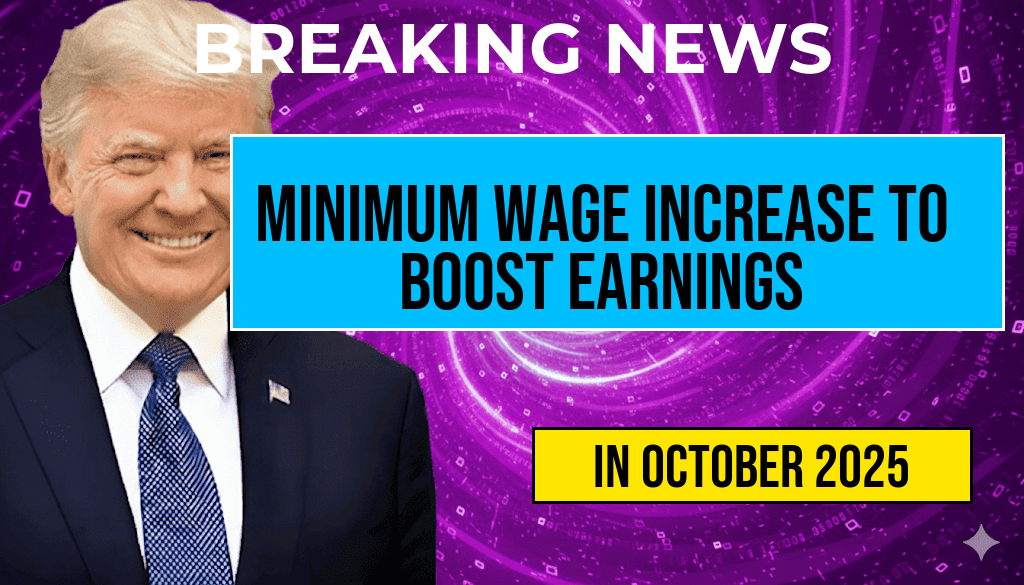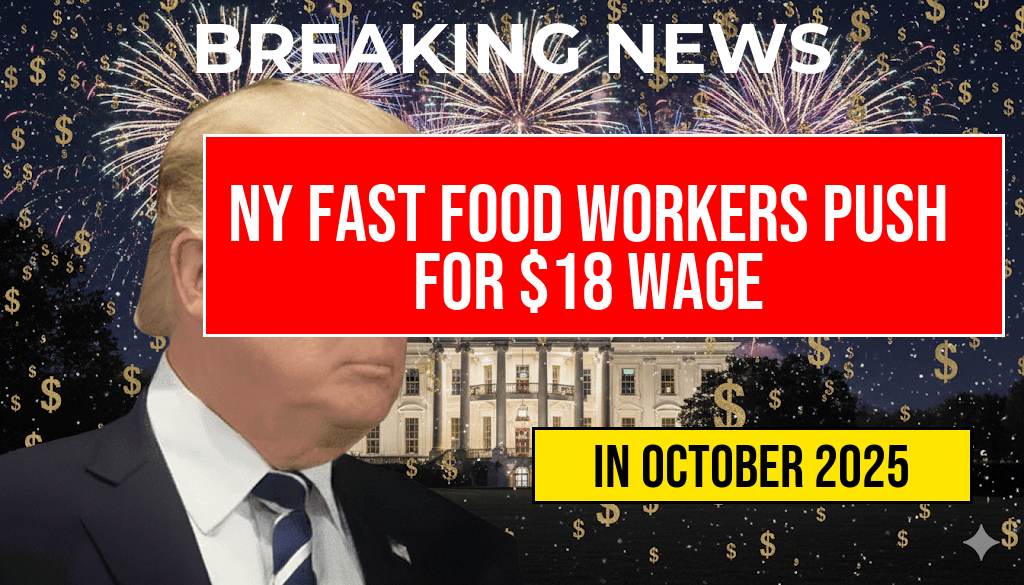Fast food workers in New York are rallying for a substantial wage increase to $18 per hour under a proposed new law aimed at improving compensation for low-wage employees in the fast food industry. The initiative comes in response to rising living costs and ongoing labor shortages, which have significantly impacted the workforce’s ability to make ends meet. As discussions unfold in the New York State Legislature, advocates argue that this wage increase is not only necessary for workers but also essential for the sustainability of the fast food sector. The push for higher wages has gained momentum, with unions and local organizations joining forces to support the movement, emphasizing the need for fair compensation in one of the country’s most expensive cities.
Details of the Proposed Wage Increase
The proposed law, which is currently under consideration, seeks to establish a minimum wage of $18 per hour for fast food workers across New York. This initiative is part of a broader effort to address wage disparities and improve working conditions in the fast food industry, which has long been criticized for low pay and limited benefits. Proponents of the bill believe that a wage increase would not only alleviate financial pressure on workers but also enhance job satisfaction and productivity.
Public Support and Advocacy
The push for an $18 hourly wage has garnered notable support from various advocacy groups, labor unions, and community organizations. Many argue that the current minimum wage is insufficient to cover basic living expenses, such as housing, food, and healthcare. A recent survey conducted by the Labor Research Association found that a significant percentage of fast food employees struggle to afford essentials, highlighting the urgency of the issue.
- Fast food workers report difficulty in meeting basic needs.
- Advocates emphasize the importance of fair wages for economic stability.
- Rising living costs have intensified calls for wage reform.
Economic Implications
Economists have weighed in on the potential economic implications of increasing the minimum wage for fast food workers. Some argue that raising wages could lead to higher consumer prices, as businesses may pass on the increased labor costs to customers. However, others counter that higher wages can stimulate economic growth by increasing consumer spending power.
Additionally, proponents highlight that a wage increase could reduce employee turnover, which is particularly high in the fast food sector. By providing better compensation, businesses could retain workers longer, ultimately saving money on hiring and training new employees. This argument aligns with findings from a study by the Economic Policy Institute, which suggests that higher wages lead to greater employee retention and productivity.
Challenges to Implementation
Despite the growing support for the wage increase, several challenges remain. Opponents of the proposed law, including some business owners and industry associations, argue that the increased labor costs could harm small businesses and lead to job losses. They express concerns that not all fast food establishments will be able to absorb the higher wages without making cuts elsewhere.
Moreover, some lawmakers are hesitant to pass legislation that could significantly alter the landscape of the fast food industry. They worry about the potential for unintended consequences, such as job displacement or increased automation in response to higher labor costs.
Next Steps
The New York State Legislature is expected to hold hearings on the proposed wage increase, during which stakeholders will have the opportunity to voice their opinions. As the debate continues, advocates remain optimistic that their efforts will lead to positive change for fast food workers.
| Date | Event |
|---|---|
| March 2023 | Introduction of the wage increase proposal |
| April 2023 | Public hearings to discuss the proposal |
| May 2023 | Legislative vote on the proposed increase |
As New York continues to grapple with issues of income inequality and workers’ rights, the outcome of this proposed wage increase could set a significant precedent for similar initiatives nationwide. Advocates believe that achieving a living wage for fast food workers is a crucial step toward ensuring economic justice and stability for all workers in the industry.
For more information on wage policies and economic impacts, visit the Economic Policy Institute or Forbes.
Frequently Asked Questions
What is the main goal of the fast food workers’ advocacy in New York?
The main goal of the fast food workers’ advocacy in New York is to secure a minimum wage of $18 per hour under the new law aimed at improving their working conditions and financial stability.
Why do fast food workers believe they deserve an $18/hour wage?
Fast food workers believe they deserve an $18/hour wage due to the rising cost of living in New York, the demanding nature of their jobs, and the need for a livable income that reflects their contributions to the industry.
What does the new law entail for fast food workers?
The new law entails provisions that aim to raise the minimum wage for fast food workers to $18 per hour, as well as protections against unfair labor practices and better working conditions.
How are fast food workers organizing their advocacy efforts?
Fast food workers are organizing their advocacy efforts through unions, community support, and public demonstrations to raise awareness and push for legislative changes regarding their wage and working conditions.
What impact could the $18/hour wage have on the fast food industry?
The implementation of an $18/hour wage could significantly impact the fast food industry by increasing operational costs for employers, potentially leading to changes in pricing, staffing levels, and overall industry practices.











